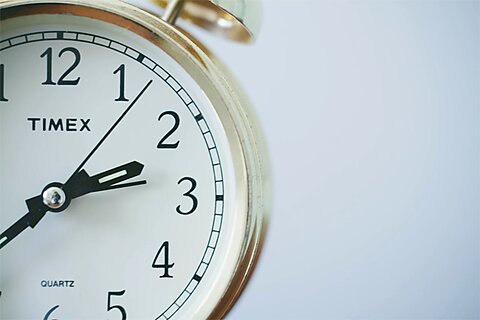This weekend, we once again go through the ritual of “falling back” after “springing forward” last March as Daylight Saving Time (DST) ends. We also go through the semiannual ritual of listening to politicians in Congress call for an end to circadian whiplash. Yet nothing ever seems to change.
But it should. We would be better off with a single, stable time year-round. Research indicates that springing forward is more damaging to our physical and mental health than falling back. It can affect appetite, mood, and sleep. It can affect appetite, mood, and sleep.
Our body clocks are driven mainly by exposure to light. When we spring forward, mornings suddenly get darker and evenings brighter. The loss of morning light can lower serotonin, the hormone that helps lift mood, while the added light at night can push back melatonin production, the signal that it’s time to sleep.
Numerous studies show increases in car crashes, heart attacks, strokes, and mood disorders, including suicide, during the first few days of switching from standard time to DST. Economists have even observed an increase in stock market volatility on the Monday following the switch to DST.
Our internal clocks are aligned with the sun, not social schedules, and standard time more closely matches natural morning light. Permanent DST shifts light exposure later in the day, which can delay sleep onset, decrease sleep duration, and lead to chronic sleep deprivation. For this reason, the American Academy of Sleep Medicine supports a return to permanent standard time.
From a medical perspective, staying on standard time year-round makes the most sense for our health and daily functioning. It keeps our schedules aligned with natural sunlight, helping our bodies regulate sleep and wake cycles, maintain alertness, and support overall well-being. Morning light under standard time enhances safety for commuters and schoolchildren and decreases the risk of accidents. Unlike permanent DST, standard time avoids dark winter mornings that can leave people sluggish and out of sync with their natural rhythms.
There is little strong evidence that permanent DST offers health benefits. Yet supporters of year-round DST argue that keeping it all year makes sense for both lifestyle and practical reasons. Later sunsets provide more daylight after work or school, which promotes outdoor activities, exercise, and socializing. Longer evenings also benefit businesses, from retail to dining and tourism, while additional light can reduce evening traffic accidents and certain crimes. There’s also a small energy savings, since more activity takes place in daylight rather than artificial light. Additionally, surveys show that most Americans prefer evening light, and permanent DST would finally eliminate the twice-yearly clock changes that disrupt routines.
The idea of DST dates back to 1784, when Benjamin Franklin, serving as ambassador to France, wrote a letter to The Journal of Paris suggesting it as a way to save on candle use. Even today, the core concept of DST stays the same: saving energy. In 1966, Congress established official dates for springing forward and falling back with the Uniform Time Act. The law allowed states to opt out of DST. Arizona chose to do so the following year, although the Navajo Nation, most of which is within Arizona, still observes DST. Hawaii, Guam, Puerto Rico, and the US Virgin Islands never opted in.
Argentina, Brazil, Mexico, Russia, South Korea, Turkey, and Uruguay have abandoned DST. The Republic of South Africa never adopted it.
In 2021, then-Senator Marco Rubio introduced a bipartisan measure called the “Sunshine Protection Act” to make daylight saving time permanent year-round. The bill would have permitted states to choose year-round standard time if they wished, yet it failed to pass and was reintroduced this year by Senator Rick Scott (R‑FL), again with bipartisan support.
While year-round standard time is probably better for one’s health, the evidence suggests that choosing one time and sticking with it is healthier than subjecting one’s body to physiological blows twice a year.
Ultimately, whether Congress acts to make DST permanent or not, the takeaway is clear: Our bodies thrive on consistency. Aligning our schedules with natural light, as standard time does, supports better sleep, mood, and overall health. Even small disruptions—like the twice-yearly clock changes—carry measurable risks. If lawmakers truly want to protect public health while reducing the frustrations of circadian whiplash, the simplest and safest path is to stick with one time—and let the sun, not the calendar, guide our days.















